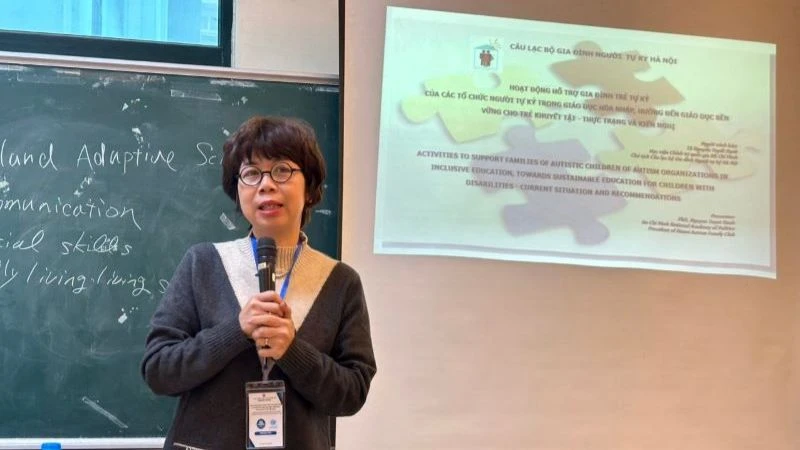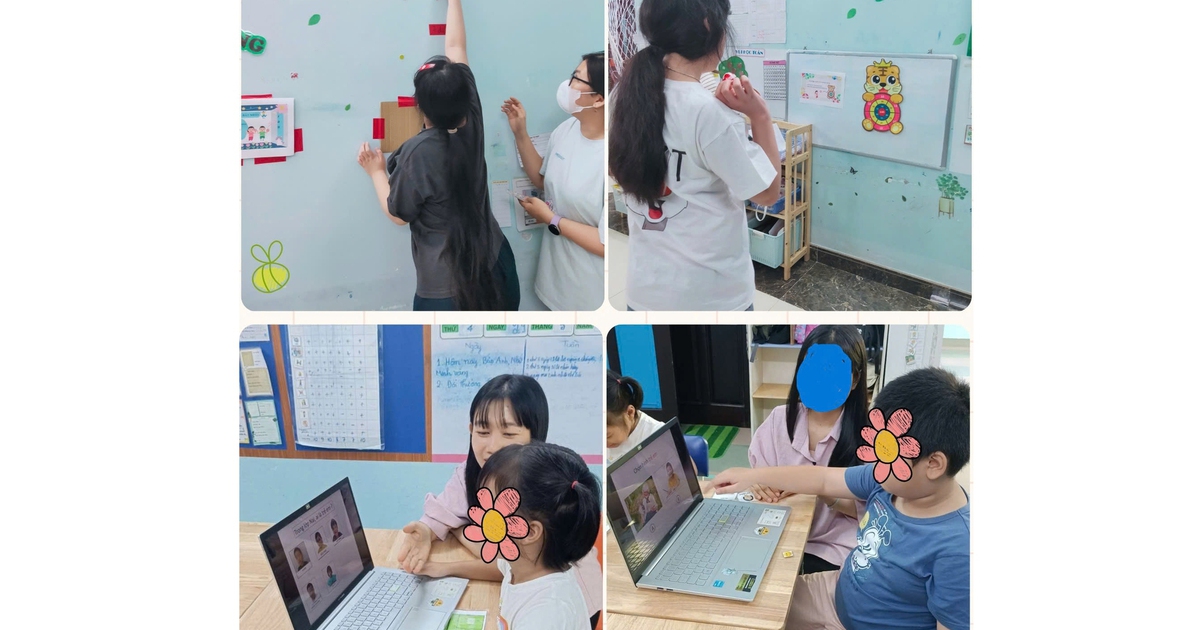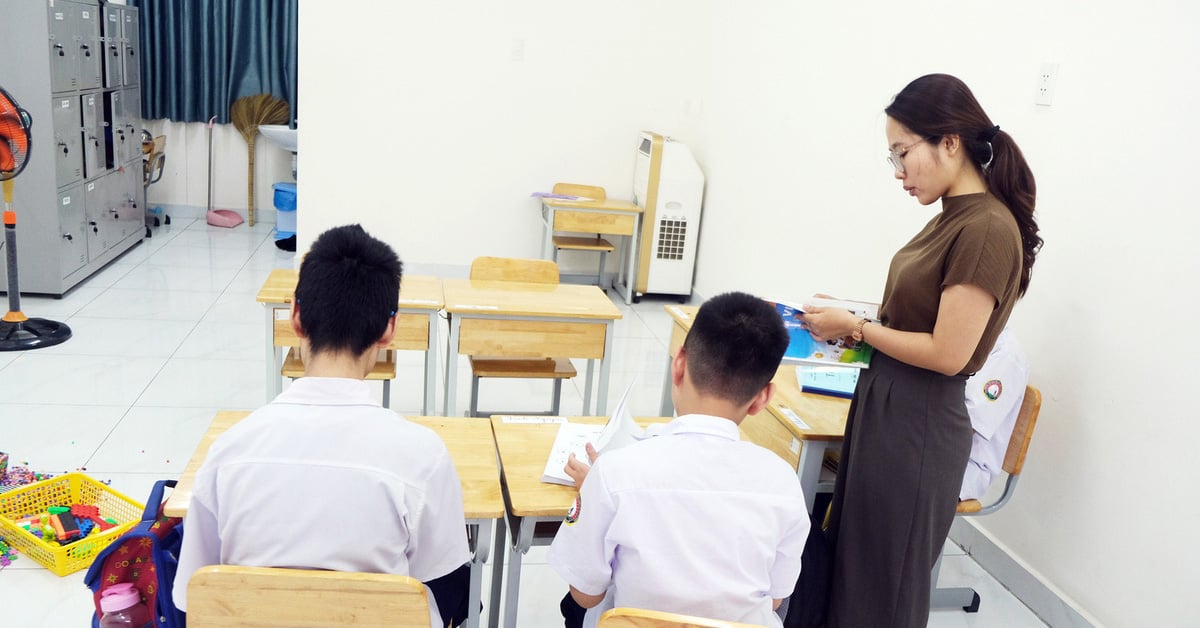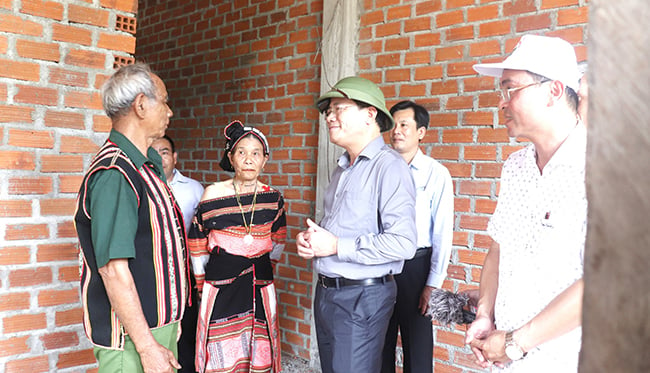Reporter: Madam, the recent incident in Da Nang City where a parent accused a teacher of abusing an autistic child has caused public outrage. As an expert in teaching and researching autistic children, what is your opinion when following this incident?
MSc. Nguyen Thi Nha Trang: I think this reflects part of the current situation of services for autistic children. First, there is no assessment of the quality of services and expertise of these facilities. As we have seen, there are many people who do not have formal expertise in special education, or some people who only have short-term certificates in inclusive education and special education, and can easily open centers or work in centers.

I think that special education and early intervention is a serious science, the leader and the team need to meet the standards of expertise and services for children. Second, I realized that the consequences of the lack of knowledge and skills about the behavioral manifestations of autistic children, so the therapist could not handle situations such as: If the child runs around, if the child does not sleep, if the child makes noise when the friends and teachers are taking a nap, what should be done?
Finally, I think that public outrage is inevitable. Policy makers and experts need to come up with more specific regulations on the standards of the centers, including professional and service standards, and clarify the origin of the center's personnel.
It is known that with the desire to help children and families with autism or sensory disorders, she founded An Early Intervention Center and An's courses. What do parents who come to An often confide in and entrust?
- What parents want, I can draw some conclusions as follows: First, parents need to be explained in detail and thoroughly about their children to understand what stage their children are developing at. This is very important because only when parents clearly understand what stage their children are in and why they have certain behavioral manifestations, will they be ready to listen to explanations about what interventions their children will receive in the next stage.
Second, parents want to be given a very clear direction for their child, which should include telling them what areas their child needs intervention in, what intervention methods they need, how many hours/week of intervention they need, and what intervention model (preschool, individual, specialized) is appropriate for their child.
Third, parents want to see the results of their child's intervention after a certain period of time. For example, after 1 week, 1 month or 3 months, has the child made any progress? These results need to be shared with parents.
Ultimately, I see it as a need for parents to share. They need to be understood and listened to because they have a lot of anxiety inside. They need emotional support and also skills to support their children at home.

Can you tell me if teaching autistic children can be done in the same class as normal children? What important skills and expertise do teachers need to have to teach autistic children?
- Firstly, autism is a simple term that people in the community are using. In a broader sense, autism is a spectrum, a neurological developmental disorder. And this disorder indicates that a child may have more or less difficulties and disabilities. Based on the level of difficulty of the child, people will come up with a suitable treatment program and environment.
Therefore, not all autistic children are suitable for an integrated preschool environment. Especially autistic children with many sensory disorders. When entering an integrated environment, children are easily overloaded with sensory stimulation, easily overwhelmed and stressed. Autistic children can learn in groups, there are group therapy methods for autistic children, however, it is completely different from the methods of preschool education. To implement these methods, teachers need to be trained in certain techniques.
Second, teachers of autistic children need to have a lot of knowledge related to: The development of different areas (language, communication, movement, etc.); Skills in using assessment tools to plan appropriate goals for children; Skills in using simple development assessment tools; Understanding approaches and how to choose appropriate intervention approaches for their children; Making specific plans for children; Implementing plans and periodically evaluating the results of children's interventions; Communicating and supporting parents. There are many other skills, but these are the basic, mandatory ones.
- To minimize the risks associated with autistic children being abused at school, what advice do you have for parents?
I think parents should be careful when choosing intervention centers today. They should find out about the head of the center, the background of the interventionists, and importantly, a center must be clear about the intervention method, intervention program, and transparent about what they are doing with parents. Listen to the feedback of other parents whose children are enrolled in the center.
And finally, be wary of “seeding posts” on class groups about “reviewing” centers. I hope parents will find a center with passion and qualifications for their children.
Thank you very much!
Source


![[Photo] April Festival in Can Tho City](https://vstatic.vietnam.vn/vietnam/resource/IMAGE/2025/4/10/bf5ae82870e648fabfbcc93a25b481ea)


![[Photo] Unique folk games at Chuong Village Festival](https://vstatic.vietnam.vn/vietnam/resource/IMAGE/2025/4/10/cff805a06fdd443b9474c017f98075a4)
![[Photo] Opening of the 11th Conference of the 13th Party Central Committee](https://vstatic.vietnam.vn/vietnam/resource/IMAGE/2025/4/10/f9e717b67de343d7b687cb419c0829a2)
























































































Comment (0)